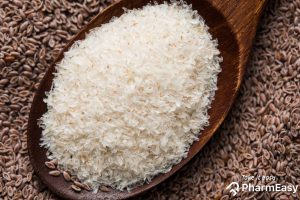Pneumonia is a lung infection that many people get each year. It can be dangerous and spread to others. There are different types of pneumonia, and it’s important to know how they spread so we can protect ourselves and our loved ones.
In this simple guide, we will learn about the types of pneumonia, how it spreads, and how to avoid getting sick. Let’s learn how to stay safe from pneumonia!
Table of Contents
Understanding Pneumonia and Its Causes
Pneumonia is an infection in the lungs caused by different germs. In this section, we will learn about pneumonia and the germs that cause it.
Definition of Pneumonia
Pneumonia is when the lungs get swollen and fill with fluid or pus because of an infection. This makes it hard to breathe and can cause fever and coughing.
Factors Leading to Pneumonia
Some things that can cause pneumonia are:
- Being around sick people
- Having a weak immune system
- Other health problems
- Age and things in the environment
Common Germs that Cause Pneumonia
The main germs that cause pneumonia are:
- Bacteria: Like Streptococcus pneumoniae and others
- Viruses: Like the flu virus and the virus that causes COVID-19
- Fungi: Like Aspergillus and others
Types of Pneumonia: Bacterial, Viral, and Fungal
There are three main types of pneumonia, based on the germs that cause them. Let’s learn about bacterial, viral, and fungal pneumonia.
Bacterial Pneumonia
Bacterial pneumonia can make you very sick. The most common kind is called pneumococcal pneumonia. It can cause high fever, chills, fast heart rate, and chest pain.
Viral Pneumonia
Viral pneumonia is usually caused by the flu virus or COVID-19. It is usually not as bad as bacterial pneumonia and doesn’t last as long. It can cause similar symptoms, but also muscle aches and tiredness.
Fungal Pneumonia
Fungal pneumonia is caused by fungi in the dirt or from bird droppings. It usually doesn’t spread to other people and is a slower infection.
Comparing the Different Types
Some differences between the types of pneumonia are:
- Bacterial pneumonia is usually worse and needs antibiotics to get better.
- Viral pneumonia is usually not as bad and may get better without treatment.
- Fungal pneumonia usually doesn’t spread and mostly affects people with weak immune systems.
Identifying Contagious Types of Pneumonia
To know if someone’s pneumonia can spread to others, we need to look at the germs, risk factors, and the most common contagious germs.
How Dangerous the Pneumonia Germs Are
Whether pneumonia can spread depends on how dangerous the germs are. Bacterial and viral germs can usually spread, but fungal germs usually don’t.
Risk Factors of Contagious Pneumonia
Some things that can make it easier to catch contagious pneumonia are:
- Being close to sick people
- Touching things with germs on them and then touching your face
- Not keeping clean
Most Common Contagious Pneumonia Germs
Some germs that can cause contagious pneumonia are:
- Bacteria: Like Streptococcus pneumoniae and others
- Viruses: Like the flu virus and COVID-19
How Contagious Pneumonia Spreads
Contagious pneumonia spreads through little drops of liquid that come from coughing, sneezing, or touching things with germs on them.
Tiny Drops of Liquid and Spreading Germs
Contagious pneumonia mostly spreads through tiny drops that come from coughing, sneezing, or talking. People close by can breathe in these drops and get sick.
Surfaces and Spreading Pneumonia
Pneumonia can also spread when you touch things with germs on them and then touch your nose or mouth. Keeping clean can help stop this.
Being Close to Sick People and Spreading Germs
Being close to sick people can make it easier to catch contagious pneumonia. Staying away from sick people and covering your mouth and nose when you cough or sneeze can help stop germs from spreading.
Things That Make It More Likely to Catch Pneumonia
Some things can make it easier to catch pneumonia, like being very young or old, having health problems, and making unhealthy choices.
Age and Pneumonia Risk
Young children and older adults are more likely to get pneumonia because their immune systems are not as strong.
Health Problems
People with health problems like diabetes, heart disease, asthma, and lung problems are more likely to get pneumonia.
Unhealthy Choices and Pneumonia
Smoking, being around dirty air, and living in crowded places can make it easier to catch pneumonia.
Knowing the Signs of Pneumonia
Knowing the signs of pneumonia can help you get treatment early and avoid getting more sick.
Signs of Bacterial Pneumonia
Some signs of bacterial pneumonia are high fever, chills, fast heart rate, chest pain, and coughing up mucus.
Signs of Viral Pneumonia
Viral pneumonia can have similar signs, but may also cause muscle aches and tiredness.
Signs of Fungal Pneumonia
Fungal pneumonia is usually a slower infection with signs that get worse over time.
How Long Does Pneumonia Stay Contagious?
How long pneumonia stays contagious depends on the type of infection and the person who is sick.
Treatment Makes Pneumonia Less Contagious
For bacterial pneumonia, it usually stops being contagious after 48 hours of taking antibiotics and when the fever goes away. Viral pneumonia is contagious until the person feels better and hasn’t had a fever for a few days.
Things That Change How Long Pneumonia Stays Contagious
How long pneumonia is contagious can change based on the person’s immune system, how well the treatment is working, and the germs causing the infection.
How to Stop Pneumonia from Spreading
Washing your hands, staying away from sick people, and covering your mouth and nose when you cough or sneeze can help stop pneumonia from spreading.
How to Know if You Have Pneumonia: Tests and Check-Ups
Doctors can check if you have pneumonia by listening to your lungs, taking pictures of your chest, and testing your blood or mucus.
Listening to Your Lungs
A doctor will listen to your lungs with a stethoscope to check for strange sounds.
Pictures of Your Chest
A doctor may take an X-ray or a CT scan of your chest to see if your lungs are infected.
Testing Your Blood or Mucus
A doctor might test your blood or mucus to find out which germs are causing your pneumonia. This can help pick the right treatment.
How to Treat Contagious Pneumonia?
Treatment for pneumonia depends on the type and how bad it is. It might include antibiotics, antiviral medicine, antifungal medicine, and other things to help you feel better.
Antibiotics for Bacterial Pneumonia
Antibiotics help treat bacterial pneumonia and make it less contagious after 48 hours.
Antiviral Medicine for Viral Pneumonia
Antiviral medicine might help treat viral pneumonia, but it usually gets better on its own.
Antifungal Medicine for Fungal Pneumonia
Antifungal medicine is used to treat fungal pneumonia and targets the specific fungus causing the infection.
Other Ways to Feel Better
Rest, drinking plenty of fluids, and taking over-the-counter medicine can help with pneumonia symptoms and help you recover.
Vaccines Help Prevent Pneumonia
Vaccines can help protect against some types of pneumonia caused by bacteria and viruses.
Pneumococcal Vaccines
These vaccines protect against the most common type of bacterial pneumonia. They are suggested for babies, older adults, and people with certain health problems.
Flu Shots
Flu shots can help prevent pneumonia caused by the flu virus. They are suggested for kids older than six months and adults.
COVID-19 Vaccines and Pneumonia
COVID-19 vaccines can help stop pneumonia caused by the virus. This is important during the pandemic.
How to Keep from Getting Pneumonia
Keeping clean and making healthy choices can help stop pneumonia from spreading.
Keeping Your Hands Clean
Washing your hands often or using hand sanitizer can help stop germs from spreading.
Covering Your Mouth and Nose
Covering your mouth and nose when you cough or sneeze, using tissues, and throwing them away can help keep germs from getting out.
Cleaning and Disinfecting Surfaces
Cleaning and disinfecting things we touch a lot can help keep us from touching germs and getting sick.
Making Healthy Choices
Getting enough sleep, exercising, and eating well can help keep our immune system strong and lower our risk of getting pneumonia.
Special Help for People Who Need It Most
Some people, like older adults, babies, and people with weak immune systems, need extra help to avoid getting pneumonia.
Pneumonia in Older Adults
Older adults should get vaccines, keep clean, and see a doctor quickly if they have pneumonia symptoms.
Pneumonia in Babies and Kids
Babies and kids should get vaccines, keep clean, and watch for pneumonia symptoms.
Pneumonia in People with Weak Immune Systems
People with weak immune systems should get vaccines if they can, keep clean, and see a doctor right away if they have symptoms.
Special Help for Different People
We should make sure to help people who need it most so they can stay safe from pneumonia.
Taking Care of Someone with Pneumonia at Home
If you are taking care of someone with pneumonia at home, make sure they rest, take their medicine, and watch for signs of getting worse.
How to Help Someone with Pneumonia Feel Better
Make sure the sick person gets plenty of rest, drinks lots of fluids, and takes medicine to help with symptoms.
Watch for Signs of Getting Better or Worse
Keep an eye on the sick person’s symptoms to see if they are getting better or worse. If they get worse, they may need to see a doctor again.
Make Sure They Take Their Medicine
Make sure the sick person takes all their medicine on time so they can get better and not spread germs to others.
Keep Germs from Spreading
Keep the sick person away from others and make sure everyone washes their hands often to help stop germs from spreading.
Key Things to Remember: Stay Smart and Safe from Pneumonia
To stay safe from pneumonia, remember to understand the risks, watch for symptoms, get treatment, and help prevent it from spreading.
Know the Risks
Knowing what makes it easier to get pneumonia can help us make good choices to stay healthy.
Watch for Symptoms and Get Treatment
If you think you have pneumonia, see a doctor right away. Getting treatment early can help you feel better faster.
Stop Pneumonia from Spreading
Washing your hands, getting vaccines, and helping people who need it most can help stop pneumonia from spreading to others.
Help People Who Need It Most
Make sure people who have a higher risk of getting pneumonia get the help they need to stay safe and healthy.
References:
1. NHS UK. Is pneumonia contagious? Retrieved from https://www.nhs.uk/common-health-questions/infections/is-pneumonia-contagious/
2. American Lung Association. What causes pneumonia? Retrieved from https://www.lung.org/lung-health-diseases/lung-disease-lookup/pneumonia/what-causes-pneumonia
3. National Heart, Lung, and Blood Institute. Pneumonia. Retrieved from https://www.nhlbi.nih.gov/health/pneumonia
4. Centers for Disease Control and Prevention. Adults: Protect yourself with pneumococcal vaccines. Retrieved from http://www.cdc.gov/features/adult-pneumococcal/
5. Centers for Disease Control and Prevention. Chlamydia pneumoniae infection. Retrieved from https://www.cdc.gov/pneumonia/atypical/cpneumoniae/index.html
6. NHS UK. How long will I be infectious after starting antibiotics? Retrieved from https://www.nhs.uk/common-health-questions/infections/how-long-will-i-be-infectious-after-starting-antibiotics
7. Centers for Disease Control and Prevention. Pneumococcal Disease: Risk & Transmission. Retrieved from https://www.cdc.gov/pneumococcal/about/risk-transmission.html



 By
By 























Comments